
A new study found that patients with mCRPC had higher PSA response with enzalutamide vs abiraterone, but no difference in time to progression, and reported worse outcomes in those with quantifiable ctDNA.

Your AI-Trained Oncology Knowledge Connection!


A new study found that patients with mCRPC had higher PSA response with enzalutamide vs abiraterone, but no difference in time to progression, and reported worse outcomes in those with quantifiable ctDNA.

Immunotherapy may represent an effective new treatment approach for relapsed mesothelioma patients, according to a new study.

Prognostic somatic copy number alterations in diffuse large B-cell lymphoma can be detected and monitored noninvasively using ctDNA from patient plasma.

Use of a psychological intervention-Conquer Fear-significantly reduced fear of cancer recurrence in cancer survivors in the first 6 months after treatment.

Significant improvements in treatment protocols have reduced the incidence of serious chronic late health effects in survivors of childhood cancer treatment.
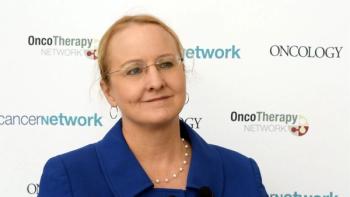
This video highlights the evolution of stereotactic body radiation therapy in the treatment of pancreatic cancer.
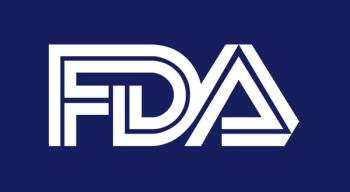
The FDA has granted approval to pembrolizumab for pediatric and adult patients with microsatellite instability (MSI)-high or mismatch repair (MMR)-deficient solid tumors.

This video examines the treatment of locally advanced penile cancer and whether an organ-sparing chemoradiotherapy approach might be an option instead of surgery.
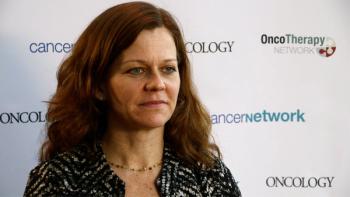
This video examines how to manage the side effects of estrogen deprivation in breast cancer patients, including vaginal dryness and hot flashes.

This video examines the late effects of estrogen deprivation in both younger and older breast cancer patients, including bone thinning, heart disease, and dementia.

Chromosomal abnormalities such as a variant t(9;22) translocation do not appear to have significant prognostic impact on children with chronic myeloid leukemia.

Both oncologists and cancer patients recognize the benefits of physical activity during treatment, but oncologists may feel ill-equipped to give recommendations on exercise, according to a new study.

The addition of adjuvant oral chemotherapy with capecitabine extended the overall survival of patients with biliary cancers by a median of 15 months, according to the results of the BILCAP study.

The implementation of the Affordable Care Act, which increased insurance coverage, was associated with an increase in the diagnosis of several screenable cancers at an earlier stage.

Two new studies presented at the Annual Scientific Meeting of the American Urological Association offer an improved understanding of some genetic underpinnings of prostate cancer.

Treatment with the gonadotropin-releasing hormone (GnRH) agonist goserelin can reduce the risk of chemotherapy-induced premature ovarian insufficiency (POI) in women with early breast cancer.
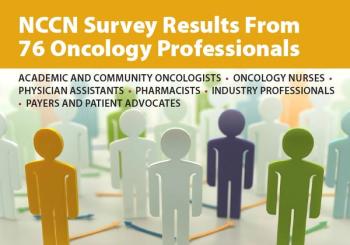
An NCCN survey taken during the period of congressional debate over new federal healthcare legislation, reports how oncology professionals feel about the possible repeal and replacement of the ACA.

Exposure to harmful environmental factors was linked with cancer incidence across the United States.

This video examines how the use of radiation therapy in patients on immunotherapy can trigger immunogenic cell death, and reviews some of the challenges related to unwanted immune responses from radiotherapy.

Blended cognitive behavior therapy can help reduce the severity of fear of cancer recurrence in survivors, according to a new randomized study.

Female survivors of childhood acute lymphoblastic leukemia were at risk for neurocognitive impairment and were more susceptible to the effects of sleep disturbance and fatigue compared with their male counterparts.

Chlorhexidine wipe bathing might help reduce the risk of deadly central line-associated bloodstream infections (CLABSIs) among cancer inpatients, but barriers can complicate implementation efforts.

Nurse practitioners play a central role in helping patients with esophageal cancer understand and manage their disease and treatment complications.

A noninvasive PET imaging method may serve as a useful predictive biomarker for responses to cancer immunotherapy, according to a new study.

This video reviews how to ensure that older breast cancer patients are receiving the most appropriate care and highlights population studies that can help inform individual treatment decisions.

This video reviews the evidence for safe and effective chemotherapy regimens in older patients with breast cancer and highlights the need for geriatric assessment in this population.
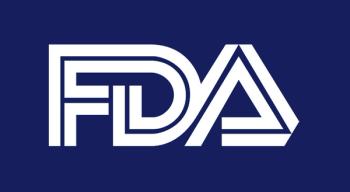
The FDA has approved regorafenib (Stivarga) for the second-line treatment of hepatocellular carcinoma (HCC) for patients who have previously received sorafenib.

The higher prostate cancer death rates seen among black men in the United States may be due to a higher incidence of preclinical disease and higher risk of metastatic progression, suggesting that different screening policies could benefit this population.

The FDA has sent warning letters to 14 companies marketing dozens of unapproved “miracle cure” products online with fraudulent claims that they prevent or cure cancer.

Younger cancer survivors experience worse survival outcomes following a second primary cancer diagnosis than their older counterparts, according to a recent study.